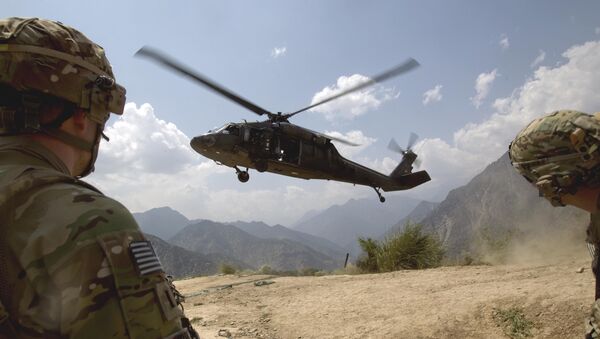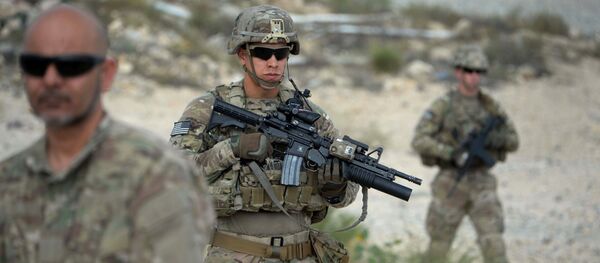"The president is studying and considering his options and will make an announcement to the American people, to our allies and partners, and to the world at the appropriate time,” White House spokeswoman Sarah Sanders said Friday.
— Jim Acosta (@Acosta) August 19, 2017
The president returned to Trump National Golf Club in Bedminster, New Jersey Saturday after a briefing with the National Security Council with no direction announced regarding whether the US would send more troops to Afghanistan. In June, Defense Secretary James Mattis was reportedly developing a plan to pour 4,000 more US personnel into Afghanistan. “This won’t affect the outcome there” as it relates to terrorism, Council on Foreign Relations member Max Abrahms said at the time.
Trump directed Mattis to create a plan for the Middle East via executive order in February. Mattis delivered a plan to Trump in mid-July, Military.com reports, but Trump was not satisfied and requested modifications to the Pentagon chief’s proposal. “I want to find out why we’ve been there for 17 years,” Trump said in Washington on July 18.
Despite spending between $4 and $6 trillion on the counterterrorism effort in Afghanistan, Iraq, and throughout the Middle East since the early 2000s, according to the Harvard Kennedy School of Government, US Army General John Nicholson said the US was in a stalemate in the fight against terrorists while speaking to the Senate Armed Services Committee in February.
Recently fired White House Chief Strategist Steve Bannon pushed for a plan outlined Academi, a private security firm once branded as Blackwater, to rely on mercenaries in Afghanistan instead of active duty US service members. Blackwater CEO Erik Prince penned an op-ed in the Wall Street Journal back in May called for an “American viceroy” to rule in Afghanistan.
This model is "literal colonialism," says Anil Kalhan, chairman International Human Rights Chair of the New York City Bar Association.
"We, the new generation, this demographic of Afghans have grown up in a war, who are fed up with it and want it to end, Afghani Ambassador to the US Hamdullah Mohib said in April. The war "must end," Mohib said.





